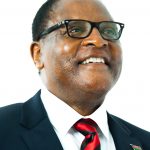Politics
Malawi Politics
This page explores Malawi’s political structure incorporating real-time RSS feed news and videos. By harnessing the power of RSS feeds, visitors can stay informed about the latest developments in Malawi’s politics as they happen. The dynamic nature of these feeds ensures that users receive up-to-the-minute updates on political events, policy changes, and significant milestones, enabling them to stay abreast of the ever-evolving political scene.

Lazarus Chakwera
President of Malawi
Incumbent
Assumed office
28 June 2020
Image credit
Malawi operates as a multi-party presidential republic, with a political structure that emphasizes democratic governance and a separation of powers among the executive, legislative, and judicial branches.
At the apex of the political structure is the President of Malawi, who serves as the head of state and government. The President is elected by popular vote for a five-year term and holds significant executive powers. The President appoints the Vice President and a cabinet of ministers who assist in the administration of the country.
The legislative branch in Malawi is represented by the National Assembly, which is a unicameral parliament. Members of the National Assembly, known as Members of Parliament (MPs), are elected through a mixed-member proportional representation system. The National Assembly is responsible for enacting laws, approving the national budget, and providing oversight of the executive branch.
The judiciary in Malawi operates independently and ensures the interpretation and application of the law. The highest judicial authority is the Supreme Court, which serves as the final appellate court and is responsible for constitutional matters. The judiciary also includes the High Court and subordinate courts, which handle various legal matters and ensure access to justice.
Malawi’s political system allows for the participation of multiple political parties, and elections play a crucial role in the democratic process. Civil society organizations and media outlets contribute to public discourse and hold the government accountable. However, the country still faces challenges, including poverty, corruption, and social inequalities, which impact the political landscape and governance. In conclusion, Malawi’s political structure is characterized by a multi-party presidential republic, with a separation of powers among the executive, legislative, and judicial branches. The President holds executive authority, while the National Assembly enacts laws and provides oversight. The judiciary operates independently to uphold the rule of law. Malawi’s political system strives to promote democratic governance, protect individual rights, and address socio-economic challenges.
Unless other sources are listed, original content is provided by ChatGPT. ChatGPT may produce inaccurate information about people, places, or facts.



